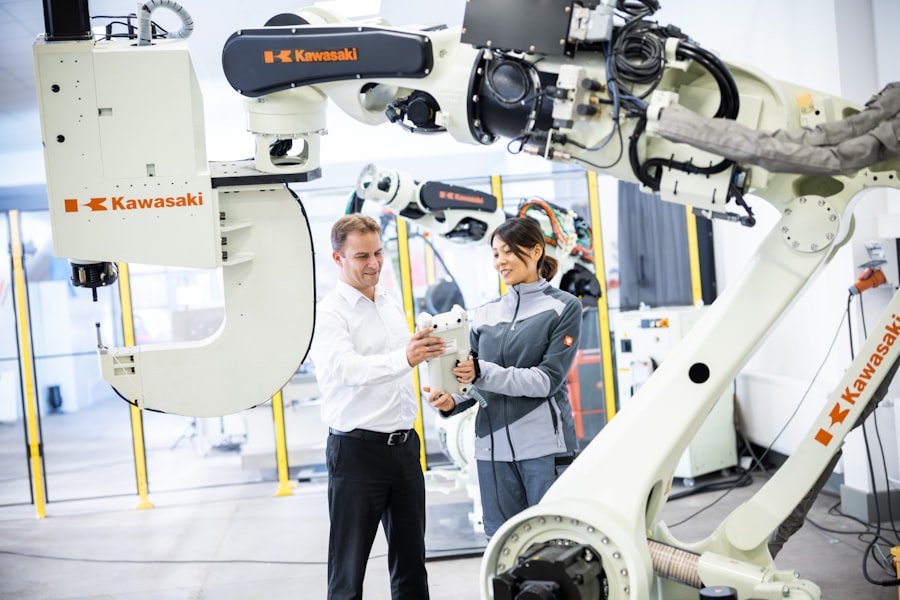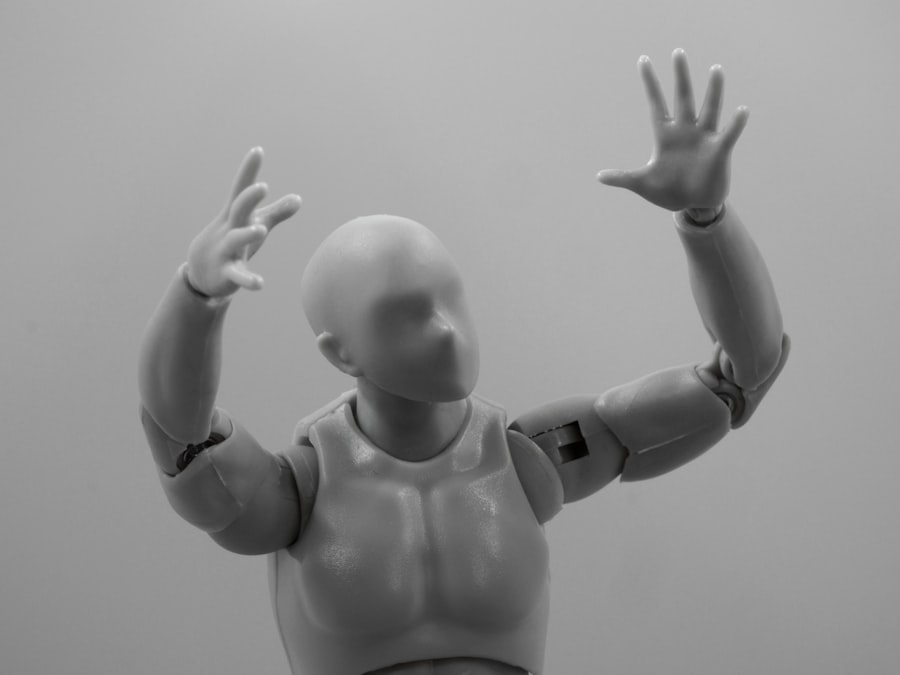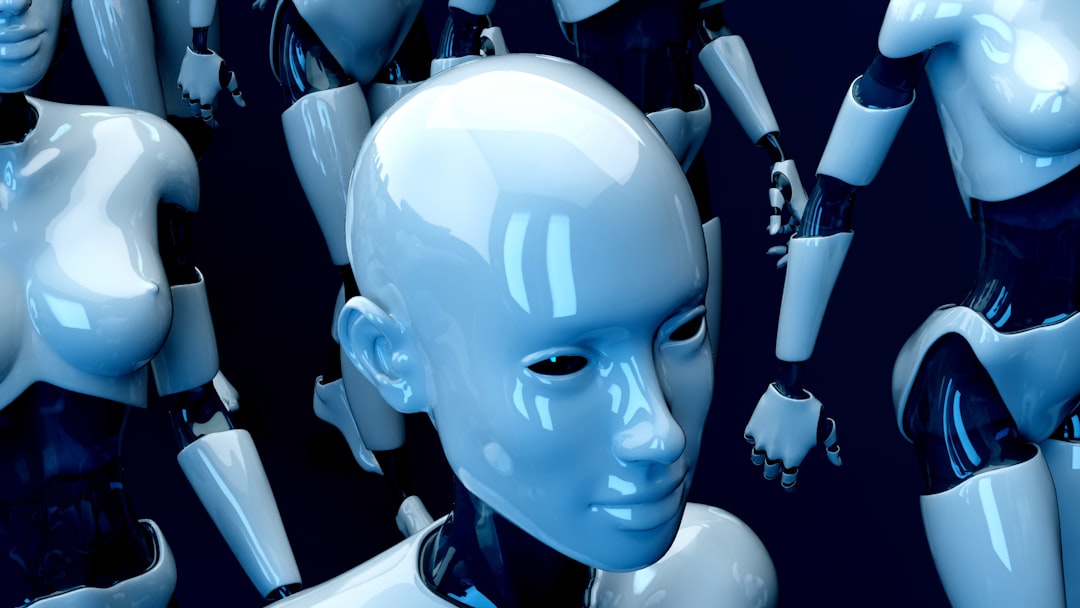As you navigate through the modern workforce, you cannot help but notice the rapid rise of automation. This technological revolution is reshaping industries and redefining the way work is performed. From manufacturing to customer service, machines and algorithms are increasingly taking over tasks that were once the domain of human workers.
The integration of artificial intelligence and robotics into everyday operations has led to increased efficiency and productivity, but it also raises questions about the future of employment. You may find yourself pondering how this shift will affect your career and the job market as a whole. The rise of automation is not merely a trend; it is a fundamental change in how businesses operate.
Companies are investing heavily in technology to streamline processes, reduce costs, and enhance service delivery. As you observe this transformation, it becomes clear that automation is not just about replacing human labor; it is also about augmenting human capabilities. While some jobs may be lost to machines, new opportunities are emerging that require a different set of skills.
Understanding this dynamic is crucial for you as you prepare for a future where automation plays an integral role in the workplace.
Key Takeaways
- Automation is on the rise, transforming the job market and creating new opportunities.
- Jobs at risk of automation include repetitive and routine tasks that can be easily performed by machines.
- Human-exclusive careers, such as those requiring creativity, critical thinking, and emotional intelligence, are less susceptible to automation.
- Skills and qualifications for robot-proof jobs include complex problem-solving, adaptability, and technological literacy.
- Creativity and critical thinking are essential for robot-proof careers, as they are difficult to replicate with automation.
Jobs at Risk of Automation
As you consider the implications of automation, it is essential to identify which jobs are most at risk. Routine and repetitive tasks are prime candidates for automation, as they can be easily programmed into machines or software. For instance, roles in manufacturing, data entry, and even some aspects of customer service are increasingly being handled by robots or automated systems.
You may find it unsettling to think about how these changes could impact your current job or the jobs of those around you. However, it is not just low-skilled positions that are at risk. Even some white-collar jobs, such as those in finance and legal services, are beginning to see the effects of automation.
Algorithms can analyze vast amounts of data more quickly and accurately than humans, leading to a shift in how these professions operate. As you reflect on your career path, it is vital to stay informed about which roles are becoming obsolete and to consider how you can pivot to more secure positions that leverage your unique human skills.
Human-Exclusive Careers

While many jobs face the threat of automation, there are certain careers that remain distinctly human. These roles often require creativity, emotional intelligence, and complex problem-solving abilities—qualities that machines struggle to replicate. As you explore potential career paths, consider fields such as the arts, education, and healthcare, where human interaction and empathy are paramount.
These professions not only provide job security but also allow you to make a meaningful impact on others’ lives. In addition to traditional roles in the arts and education, emerging fields such as social work and counseling are also resistant to automation. These careers rely heavily on interpersonal skills and the ability to understand and respond to human emotions.
As you think about your future, it may be beneficial to focus on developing skills that machines cannot easily replicate. By choosing a career that emphasizes human connection and creativity, you can position yourself for success in an increasingly automated world.
Skills and Qualifications for Robot-Proof Jobs
| Skills and Qualifications for Robot-Proof Jobs |
|---|
| 1. Critical thinking and problem-solving |
| 2. Creativity and innovation |
| 3. Emotional intelligence |
| 4. Adaptability and flexibility |
| 5. Leadership and management |
| 6. Communication and collaboration |
| 7. Digital literacy and technological skills |
| 8. Continuous learning and upskilling |
To thrive in a landscape dominated by automation, you must equip yourself with the right skills and qualifications. Technical proficiency in areas such as data analysis, programming, and digital literacy will be invaluable as industries continue to evolve. However, it is equally important to cultivate soft skills that enhance your employability in robot-proof jobs.
Skills such as communication, teamwork, and adaptability will set you apart from those who may have more technical expertise but lack interpersonal abilities. Moreover, pursuing higher education or specialized training can provide you with a competitive edge in the job market. Consider enrolling in courses that focus on critical thinking, problem-solving, and creativity—skills that are increasingly sought after by employers.
As you invest in your education and professional development, remember that lifelong learning is essential in an age where technology is constantly advancing. By staying current with industry trends and continuously updating your skill set, you can ensure that you remain relevant in a rapidly changing workforce.
The Importance of Creativity and Critical Thinking
In a world where automation is becoming more prevalent, creativity and critical thinking are more important than ever. These skills enable you to approach problems from unique angles and develop innovative solutions that machines cannot replicate. As you engage with complex challenges in your career, harnessing your creative potential will allow you to stand out in a crowded job market.
Employers increasingly value individuals who can think outside the box and contribute fresh ideas to their organizations. Moreover, critical thinking equips you with the ability to analyze information effectively and make informed decisions. In an era where data is abundant but not always reliable, being able to discern valuable insights from noise is a crucial skill.
As you cultivate your creative and critical thinking abilities, consider seeking out experiences that challenge your perspective—whether through collaborative projects, brainstorming sessions, or engaging with diverse viewpoints. By honing these skills, you will position yourself as an invaluable asset in any workplace.
The Role of Emotional Intelligence in Robot-Proof Careers

Emotional intelligence (EI) is another key factor that distinguishes human workers from machines. As you navigate your career path, developing your emotional intelligence can significantly enhance your ability to connect with others and foster positive relationships in the workplace. EI encompasses self-awareness, empathy, and social skills—all of which are essential for effective communication and collaboration.
In roles that require teamwork or client interaction, having high emotional intelligence can set you apart from your peers. In addition to improving interpersonal relationships, emotional intelligence also plays a vital role in leadership positions. As organizations become more complex and diverse, leaders who can understand and manage their own emotions while empathizing with their team members will be better equipped to inspire and motivate others.
As you consider your career trajectory, investing time in developing your emotional intelligence can lead to greater job satisfaction and success in roles that require strong interpersonal skills.
Jobs in Healthcare and Social Services
The healthcare sector is one area where job security remains strong despite the rise of automation. While certain administrative tasks may be automated, the core functions of healthcare—diagnosing illnesses, providing treatment, and offering emotional support—require human expertise and compassion. As you explore career options within this field, consider roles such as nursing, physical therapy, or mental health counseling.
These professions not only offer stability but also allow you to make a meaningful difference in people’s lives. Social services also present opportunities for fulfilling careers that are resistant to automation. Roles such as social workers or community organizers rely heavily on human interaction and empathy.
As society faces complex challenges such as poverty, mental health issues, and social inequality, professionals in these fields play a crucial role in advocating for change and supporting vulnerable populations. By pursuing a career in healthcare or social services, you can contribute positively to society while enjoying job security in an automated world.
The Future of Education and Training for Robot-Proof Jobs
As the job market evolves due to automation, so too must education and training programs adapt to prepare individuals for robot-proof careers. Traditional educational models may need to be reimagined to emphasize skills such as creativity, critical thinking, and emotional intelligence alongside technical knowledge. You may find that experiential learning opportunities—such as internships or project-based courses—become increasingly valuable as they provide real-world experience that enhances employability.
Moreover, online learning platforms are gaining popularity as they offer flexible options for individuals seeking to upskill or reskill throughout their careers. As you consider your own educational journey, explore various avenues for learning that align with your career goals. Whether through formal education or self-directed study, embracing a mindset of lifelong learning will be essential for navigating the future job market successfully.
The Impact of Robotics on the Labor Market
The impact of robotics on the labor market is profound and multifaceted. While automation has the potential to displace certain jobs, it also creates new opportunities for employment in emerging fields such as robotics engineering and AI development. As industries adapt to technological advancements, new roles will emerge that require specialized knowledge and skills related to automation technologies.
You may find yourself drawn to these innovative fields as they offer exciting prospects for growth and advancement. However, it is essential to recognize that the transition may not be seamless for everyone. Workers in industries heavily affected by automation may face challenges as they seek new employment opportunities or retrain for different roles.
As you navigate this landscape, staying informed about industry trends and being proactive about developing relevant skills will be crucial for ensuring your own career resilience amidst these changes.
Job Security in Robot-Proof Careers
In an age where automation threatens many traditional jobs, seeking out robot-proof careers can provide a sense of job security that may be elusive elsewhere. Professions that rely on uniquely human skills—such as creativity, emotional intelligence, and complex problem-solving—are less likely to be automated in the near future. By focusing on these areas when considering your career path, you can position yourself for long-term stability even as technology continues to evolve.
Engaging in roles that allow you to connect with others or contribute positively to society can lead to greater job satisfaction overall. As you contemplate your future career choices, prioritize positions that align with your values and passions while also offering resilience against automation.
The Need for Adaptability and Lifelong Learning in the Age of Automation
As you move forward in your career journey, embracing adaptability and lifelong learning will be essential skills for thriving in an age dominated by automation. The rapid pace of technological change means that industries will continue to evolve at an unprecedented rate; therefore, being open to new ideas and willing to learn will set you apart from those who resist change. Cultivating a growth mindset will empower you to embrace challenges as opportunities for growth rather than obstacles.
Additionally, staying curious about emerging trends within your field can help you identify new areas for development or specialization. Whether through formal education or self-directed learning initiatives—such as online courses or workshops—continuously updating your skill set will ensure that you remain competitive in an ever-changing job market. By prioritizing adaptability and lifelong learning now, you can position yourself for success well into the future as automation continues its transformative journey across industries.
In the ever-evolving landscape of technology and automation, there is a growing conversation about the types of jobs that are unlikely to be replaced by robots. These roles often require a high degree of human empathy, creativity, and complex decision-making that machines cannot replicate. For instance, professions in healthcare, such as therapists and nurses, rely heavily on human interaction and emotional intelligence. Similarly, creative fields like art and writing demand a level of originality and personal expression that robots are yet to achieve. For more insights into the future of work and the roles that are likely to remain human-centric, you can explore this related article that delves into the nuances of job security in the age of automation.
FAQs
What are jobs that will never be replaced by robots?
Some jobs that are unlikely to be replaced by robots include those that require high levels of creativity, emotional intelligence, and complex problem-solving skills. These may include roles in healthcare, education, and the arts.
Why are these jobs unlikely to be replaced by robots?
These jobs require human qualities such as empathy, intuition, and the ability to understand and respond to complex human emotions and situations. Robots currently lack the ability to replicate these uniquely human traits.
What are some examples of jobs that will never be replaced by robots?
Examples of jobs that are unlikely to be replaced by robots include doctors, nurses, therapists, teachers, artists, and creative professionals. These roles require a high degree of human interaction, creativity, and emotional intelligence.
What skills are important for jobs that will never be replaced by robots?
Skills such as critical thinking, emotional intelligence, creativity, and complex problem-solving are important for jobs that are unlikely to be replaced by robots. These skills are uniquely human and cannot be easily replicated by machines.
